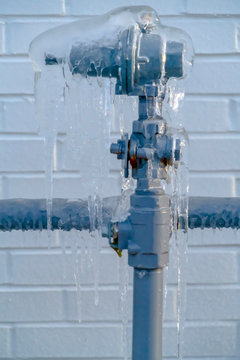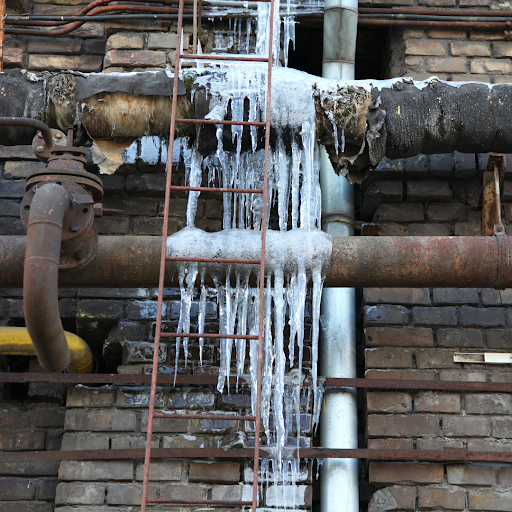Essential Strategies for Avoiding Frozen Plumbing in Cold Weather
Essential Strategies for Avoiding Frozen Plumbing in Cold Weather
Blog Article
How do you really feel in regards to Preventing and dealing with frozen pipes?

Cold weather can wreak havoc on your plumbing, especially by freezing pipes. Right here's exactly how to avoid it from happening and what to do if it does.
Intro
As temperature levels drop, the threat of frozen pipelines boosts, potentially causing costly repair services and water damages. Understanding just how to stop frozen pipelines is crucial for home owners in chilly environments.
Understanding Icy Pipes
What creates pipelines to freeze?
Pipelines ice up when subjected to temperatures listed below 32 ° F (0 ° C) for extended periods. As water inside the pipes ices up, it increases, putting pressure on the pipeline walls and potentially creating them to break.
Risks and damages
Frozen pipelines can bring about water disturbances, residential property damages, and costly repair services. Burst pipes can flood homes and cause comprehensive architectural damages.
Indications of Frozen Pipes
Recognizing frozen pipelines early can prevent them from rupturing.
How to recognize icy pipes
Seek decreased water circulation from taps, unusual odors or sounds from pipelines, and noticeable frost on revealed pipelines.
Avoidance Tips
Protecting at risk pipelines
Cover pipelines in insulation sleeves or utilize warmth tape to protect them from freezing temperature levels. Concentrate on pipelines in unheated or exterior areas of the home.
Home heating strategies
Keep indoor rooms effectively warmed, specifically locations with pipes. Open up closet doors to permit cozy air to flow around pipelines under sinks.
Shielding Exterior Plumbing
Garden hoses and outside taps
Disconnect and drain pipes garden pipes before wintertime. Mount frost-proof spigots or cover outdoor taps with insulated caps.
What to Do If Your Pipes Freeze
Immediate activities to take
If you believe frozen pipes, keep faucets open up to eliminate pressure as the ice thaws. Use a hairdryer or towels taken in hot water to thaw pipes gradually.
Long-Term Solutions
Architectural adjustments
Consider rerouting pipes away from exterior wall surfaces or unheated locations. Include added insulation to attic rooms, basements, and crawl spaces.
Updating insulation
Buy top notch insulation for pipes, attics, and wall surfaces. Correct insulation assists keep constant temperatures and reduces the threat of frozen pipelines.
Conclusion
Protecting against icy pipelines needs aggressive steps and fast reactions. By recognizing the causes, indicators, and preventive measures, homeowners can secure their plumbing during winter.
Helpful Tips to Prevent Frozen Pipes this Winter
UNDERSTANDING THE BASICS: WHY PIPES FREEZE AND WHY IT’S A PROBLEM
Water freezing inside pipes is common during the winter months, but understanding why pipes freeze, and the potential problems it can cause is crucial in preventing such incidents. This section will delve into the basics of why pipes freeze and the associated problems that may arise.
THE SCIENCE BEHIND FROZEN PIPES
When water reaches freezing temperatures, it undergoes a physical transformation and solidifies into ice. This expansion of water as it freezes is the primary reason pipes can burst. As the water inside the pipe freezes, it expands, creating immense pressure on the walls. If the pressure becomes too great, the pipe can crack or rupture, leading to leaks and water damage.
FACTORS THAT CONTRIBUTE TO PIPE FREEZING
Low Temperatures: Extremely cold weather, especially below freezing, increases the risk of pipes freezing. Uninsulated or Poorly Insulated Pipes: Pipes located in unheated areas, such as basements, crawl spaces, or attics, are more prone to freezing. Insufficient insulation or lack of insulation altogether exacerbates the problem. Exterior Wall Exposure: Pipes running along exterior walls are susceptible to freezing as they encounter colder temperatures outside. Lack of Heating or Temperature Regulation: Inadequate heating or inconsistent temperature control in your home can contribute to frozen pipes. PROBLEMS CAUSED BY FROZEN PIPES
- Pipe Bursting: As mentioned earlier, the expansion of water as it freezes can cause pipes to burst, resulting in significant water damage.
- Water Damage: When pipes burst, it can lead to flooding and water damage to your property, including walls, ceilings, flooring, and personal belongings.
- Structural Damage: Prolonged exposure to water from burst pipes can compromise the structural integrity of your home, leading to costly repairs.
- Mold and Mildew Growth: Excess moisture from water damage can create a favorable environment for mold and mildew growth, posing health risks to occupants.
- Disrupted Water Supply: Frozen pipes can also result in a complete or partial loss of water supply until the issue is resolved.
WHY CERTAIN PIPES ARE MORE PRONE TO FREEZING
- Location: Pipes located in unheated or poorly insulated areas, such as basements, crawl spaces, attics, or exterior walls, are at higher risk of freezing.
- Exterior Pipes: Outdoor pipes, such as those used for irrigation or exposed plumbing, are particularly vulnerable to freezing as they are directly exposed to the elements.
- Supply Lines: Pipes that carry water from the main water supply into your home, including the main water line, are critical to protect as freezing in these lines can affect your entire plumbing system.
- Underground Pipes: Pipes buried underground, such as those connected to sprinkler systems or outdoor faucets, can be susceptible to freezing if not properly insulated.
https://busybusy.com/blog/helpful-tips-to-prevent-frozen-pipes-this-winter/

I found that write up about 6 Ways to Prevent Frozen Pipes when browsing on the internet. So long as you liked our blog entry please be sure to share it. We treasure reading our article about How to prepare your home plumbing for winter weather.
Click Here Report this page